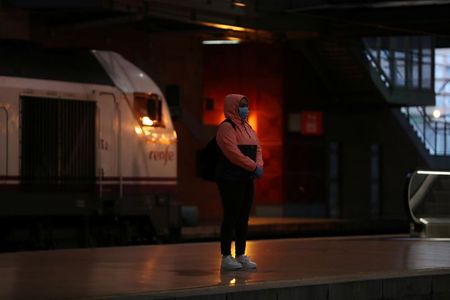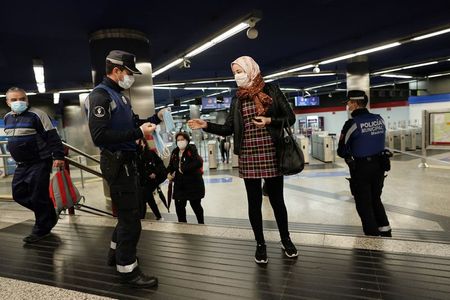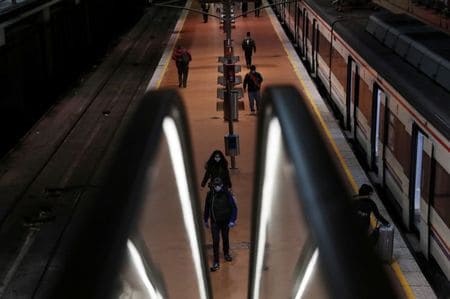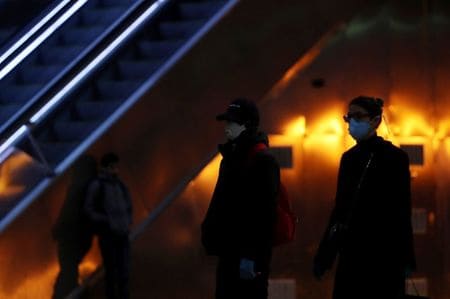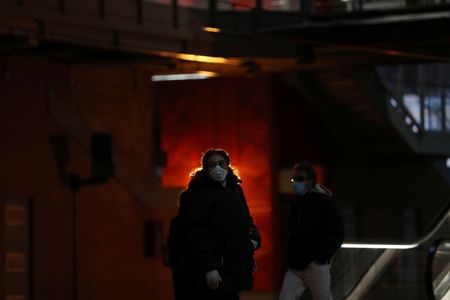MADRID (Reuters) – Spaniards at the country’s main transport hubs were handed face masks on a rainy Monday morning as the government relaxed some of the tough lockdown measures designed to rein in the coronavirus health crisis which has claimed nearly 17,000 lives.
As Spain enters its second month of lockdown, some businesses that cannot operate remotely, including construction and manufacturing, were allowed to reopen on Monday, sparking criticism from some regional leaders who fear a resurgence of the outbreak.
However, the majority of the population are still confined to their homes, while shops, bars and public spaces will remain closed until at least April 26.
Interior minister Fernando Grande-Marlaska told Cadena Ser radio station that Spanish police started handing out millions of masks early in the morning across regions that are not observing a public holiday. “The health of workers must be guaranteed. If this is minimally affected, the activity cannot restart,” he said.
One company reopening, Burgos-based industrial group Nicolas Correa, said it would take measures to prioritise the health of its staff.
“We will continue to work in shifts, with staggered entries and exits to avoid concentrations of staff,” it said, adding that all workers would be provided with protective equipment.
Reuters TV footage showed only a few commuters coming in and out of the main entrance of Madrid’s usually bustling Atocha train station. Road traffic was light too, with mainly public buses passing by, in contrast to the customary morning jams seen just a month ago.
Spain’s cumulative death toll from the coronavirus rose to 16,972 on Sunday with confirmed cases totalling 166,019 although the lockdown restrictions have helped slow a spiralling death rate that reached its peak in early April.
Prime Minister Pedro Sanchez said on Sunday the decision to restart some sectors of the economy was taken after consulting a committee of scientific experts and any further winding down would depend on gains made against the virus.
(Reporting by Elena Rodriguez and Marco Trujillo, writing by Jose Elias Rodriguez, editing by Nathan Allen, Kirsten Donovan)


